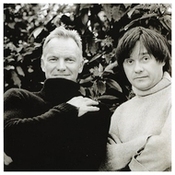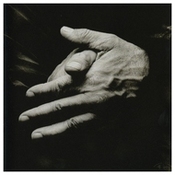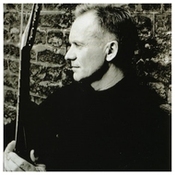
Songs From The Labyrinth
Soft tones on the lute... Sting performs works by John Dowland at the Stuttgart Liederhalle
The 21st century hasn't yet distinguished itself particularly in the development of a new musical genre. Instead, musicians are now digging deep into the past to dig for their own stylistic roots and give lesser-known artists a voice. Jazz, blues, and folk influences enrich the pop monotony, while acoustic instruments like the harp, xylophone, and banjo form an analog front against the digital sound generation machinery.
Gordon Matthew Sumner, who rose to stardom under the nickname Sting, has already gone through this development. He, who once mixed reggae with punk and then rock with pop with his band Police, and who, newly reunited, will bring this mixture back to the stages of the world this fall with his colleagues Copeland and Summers, has repeatedly reinvented himself on his solo career. He flirted quite successfully with jazz, dabbled in world music, and, on the advice of friends, discovered the lute music of the Renaissance composer John Dowland (1563 to 1623). When he then met the Bosnian lutenist Edin Karamazov, it wasn't long before the project "Sting Goes Classical" was launched. The two recorded a selection of Dowland ballads, which were released on the album "Songs from the Labyrinth" in 2006.
Thus, the concert at the Stuttgart Liederhalle was deliberately quiet. The inevitable coughs are muffled into handkerchiefs, every rustle is clearly audible, while Karamazov sets the tone for the evening with instrumental pieces, including Bach's Toccata. His virtuoso performance can only be surpassed by the arrival of the English blond. Wearing a black suit, he enters the stage, sits down at his microphone, and launches into "Flow My Tears" – a melancholic ballad, one of many penned by Dowland. The supposedly maligned man, who had tried in vain for many years to become a lutenist at the court of the English queen, processed his bitterness and disappointment in his songs. His high compositional skill, his complex and intricate melodies for both instrument and singer, became his letter of recommendation to the aristocratic circles in Europe, who appreciated his art.
Taking on the challenge of re-setting Dowland's melodies requires courage. Therefore, Sting took singing lessons at the Schola Cantorum in Basel to properly approach the great works vocally. It was certainly worth it, as he even mastered parts that would leave many a countertenor with a knotted vocal cord. And when more volume is required, such as in the pieces 'Can she excuse my wrongs' and 'Fine knacks for ladies,' he is supported by an eight-person mixed vocal ensemble. By the time 'Come heavy sleep' comes around, no one in the audience, not even the coughers, dares to breathe. This work couldn't be interpreted more sensitively.
Admittedly, minor flaws become apparent here and there. Sting isn't a lutenist, so he remains the accompanying part, while Karamazov takes over the melodic lines. 'I hope you noticed that I played the difficult part,' the singer jokes in German, making it clear with a wink that he correctly assesses his own abilities. And even if he drags his way through the transitions vocally in one or two pieces, that's okay, indeed necessary. Every arrangement thrives on the individual touch of the performer.
At the end, he tests them out on his own piece, 'Fields Of Gold', and 'Hellhound On My Trail' by blues legend Robert Johnson. The unusual instrumentation suits them quite well, but 'Message In A Bottle' doesn't work on the lute. But that will be available again soon in its original version.
(c) Eßlinger Zeitung by Ole Detlefsen
Sting, very quietly on the lute...
The Earl of Essex was one of the lovers of Queen Elizabeth I of England, also known as "the Virgin Queen." At the end of the 16th century, there were naval battles, executions, and unfortunate musicians. The composer and lutenist John Dowland was arguably the most talented. And Gordon Matthew Sumner, nicknamed Sting, has a lot to say about it. He has studied the 400-year-old stories and ballads intensively.
He has brought on board a prominent contemporary lutenist, Edin Karamazov from Bosnia. The lute is presented in a completely unspectacular way as a sound space in the Beethoven Hall of the Liederhalle. Karamazov performs finger exercises on the polyphonic lute and leads into Bach's Toccata on "Mr. Sumner." Sting's unmistakable voice floats velvety softly and finely nuanced over the tinny plucked accompaniment. Dowland's letters, which the trained teacher reads aloud while providing a history lesson, serve as a common thread throughout the melancholic "Songs from the Labyrinth."
With the four women and four men of the London choir Stile Antico, the baroque music becomes more melodic. "Flow my Tears," "Have you seen the bright Lily grow," and "Fine Knacks for Ladies" are the titles. Sting's enthusiasm is palpable. With a wink, he opens the audience's ears to serious pieces. The experiment is a success, with Sting filling concert halls with the unpopular music of a baroque singer-songwriter.
But a sigh of relief runs through the audience when familiar chords appear in the encore section. 'Fields of Gold' in baroque unplugged style, the Robert Johnson blues 'Hellhound on my Trail' with coyote howls, and 'Message in a Bottle' accompanied by Stile Antico. Is Sting ready for the Police again?
(c) Stimme by Jürgen Senghaas






